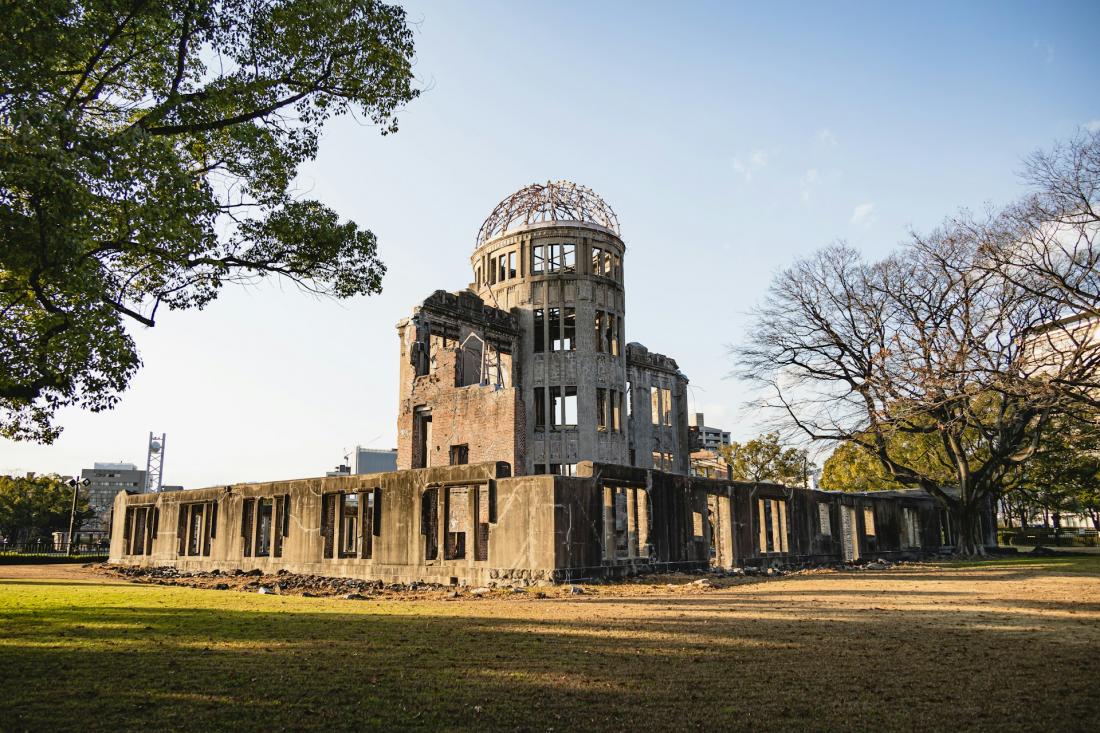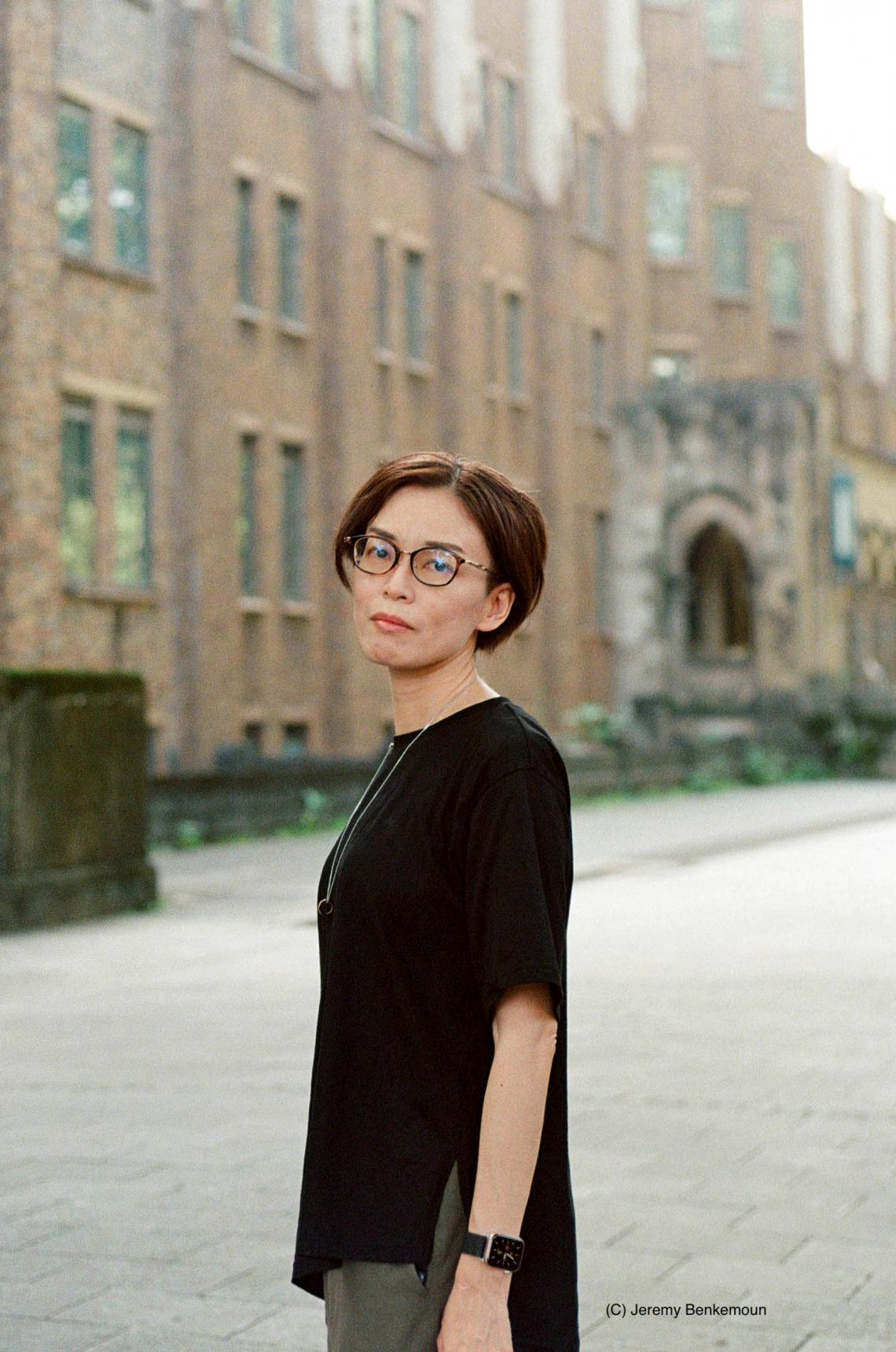Atomic Bomb Dome, Hiroshima_Photo by Alex V on Unsplash
Professor Sayaka Oki, The University of Tokyo, Graduate School of Education
Collective ‘memory’ is one way to ensure that past mistakes in the evolution of science systems are not repeated after a crisis, disaster or conflict according to a University of Tokyo historian who has contributed to the International Science Council’s latest report: Protecting Science in Times of Crisis.
The paper, released today, reflects on the current era of many and varied crises from violent conflicts to natural disasters, and suggests a way forward to develop support systems that will help to prevent the loss of scientists, their work and invaluable research archives and infrastructure.
In 2022, the number of people forced to flee due to persecution, conflict, violence and human rights violations reached more than 100 million (UNHCR, 2022). Amongst those fleeing were scientists, scholars, doctors, engineers, professors and university students.
Coauthor of the International Science Council’s Protecting Science in Times of Crisis, Dr Vivi Stavrou said as knowledge brokers, scientists were often the first to be affected, imprisoned and exiled in times of crises yet few people realise the impact the loss of science knowledge and infrastructure has on their country and future generations.
“There is currently no shared understanding of how the global scientific community can respond to crises that affect science and scientists, or of how it can coordinate the rebuilding of science systems affected by crises,” Dr Stavrou said.
Professor Sayaka Oki from the University of Tokyo Graduate School of Education contributed to the paper with learnings from the Fukushima earthquake, tsunami and subsequent nuclear disaster in 2011 and the post-World War II recovery effort.
“Fukushima was a paradigm shift for us because we had never experienced anything like this before. As global negotiations started to happen to respond to the crisis, more information became available than would normally have been released. For example, data on radioactivity became more visible after this incident and people became more aware of the issue,” Professor Oki said.
“At first, scientists seemed to be really shocked by the tsunami. Firstly, that level of seismic activity hadn’t occurred in 1000 years, which really challenged our construction technologies that are normally based on a 200-300-year time scale. The differences of opinion that followed on how to mitigate the risk caused conflictwithin and outside the science community.
“Some science and technology scientists were probably communicating and coordinating a response through their networks, but it seemed rather sporadic. There was no strong single voice which united scientists and that meant communication was left open to rumour and misinformation.”
Professor Oki says technological and engineering sciences were in demand at the time of both the Fukushima and World War II crises but the lack of support for social sciences was a missed opportunity.
“In the immediate aftermath of a disaster it is difficult to have inclusive, comprehensive and reasoned discussions, so we had a real dilemma. A democratic society should have free discussion but in reality, especially for several days after an incident, it can be really difficult to have considered and consistent messaging. So that is when a single voice is needed, but at the same time it needs to be transparent and clear,” Professor Oki explained.
The report recommends that in times of crises external collaborations can help to bridge the gap of instability and protect the integrity of research. Professor Oki says during WWII science and technology advances were a closely guarded secret but from 1947 a major shift (called "reverse course") occurred in response to the emerging global Cold War that saw the United States and its allies become more interested in promoting Japan’s economic and technological development.
“Japan received a lot of help, especially from the United States and some countries in Europe, and it really helped to rebuild the academic community at the time. Similarly with Fukushima, Japan needed help with developing some of the robotic technology that was needed to deal with the nuclear power plant. I think both cases revealed that collaboration is critically important and it is possible in times of crisis.”
When it comes to advice on rebuilding science systems or collaborations, every case is different according to Professor Oki but the Japanese experience has shown that keeping the collective memory active can open pathways to new and more encompassing ways to protect scientists and research in times of crisis.
“Unfortunately, during times of conflict libraries and many data were destroyed. People do try to save this kind of infrastructure and memory and that’s important to give people the motivation to rebuild their society,” Professor Oki said. “For example, cities like Hiroshima and Nagasaki lost many important artefacts and archives and in the process of recovering from such a catastrophic incident, we have tried to unite memories, an effort that is ongoing even today.”
A Call to Action
The ISC is urging international scientific institutions, governments, academies, foundations, and the broader scientific community to embrace the recommendations outlined in Protecting Science in Times of Crisis. By doing so, we can contribute to a more resilient, responsive, and prepared scientific ecosystem capable of withstanding the challenges of the 21st century.
Media Assets:
- Report embargoed until 12:01 20 February 2024 UTC: https://council.science/wp-content/uploads/2024/02/Protecting-Science-in-Times-of-Crisis_ISC_2024.pdf
- Executive Summary: embargoed until 12:01 20 February 2024 UTC https://council.science/wp-content/uploads/2024/01/Protecting-Science-EXEC-SUMMARY.pdf
- Infographic: https://futures.council.science/publications/science-in-times-of-crisis
- Short film with closed captions: embargoed until 12:01 20 February 2024 UTC https://www.youtube.com/watch?v=6qIHSN2ISws
About the International Science Council (ISC)
The ISC is a non-governmental organization with a unique global membership that brings together scientific unions, associations, and research councils to catalyse change on issues of major importance to science and society. The ISC is an international non-governmental organization with a unique global membership that brings together 250 international scientific unions and associations, national and regional scientific organizations including academies and research councils, international federations and societies, and young academies and associations.
About the International Science Council Regional Focal Point for Asia and the Pacific
The International Science Council Regional Focal Point for Asia and the Pacific (ISC RFP-AP) is led by the Australian Academy of Science. The five-year programme (2023-2028) is working to ensure that regional needs and priorities are adequately represented in the ISC's global agenda.
About the Centre for Science Futures
Established in 2023, the ISC's Centre for Science Futures aims to improve understanding of emerging trends in science and research systems, offering tools for impact and action.
Contact:
Global:
Alison Meston
Director, Communications
[email protected]
+33 673 93 86 65
Asia and the Pacific
Aleta Johnston
Communications Manager
[email protected]
+61 431 514 677
Ends




